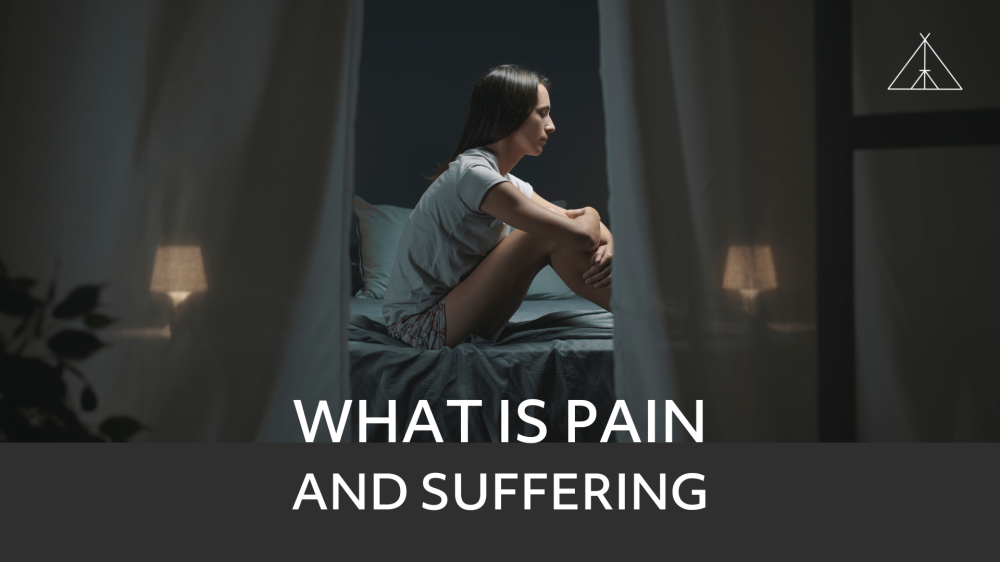What does it mean to evaluate pain and suffering?
It’s easy to identify and describe physical injuries after a severe accident—sometimes broken limbs, concussions, punctured lungs, or even traumatic brain injury. But “pain and suffering”? That’s harder to identify.The incidents that cause the most physical injury—medical malpractice, product liability, car accidents, slip and falls—also cause pain and suffering.A fair verdict must not be partial or discounted compensation. A fair verdict must account for all the harms, day and night, for all time.
Here are some examples of pain and suffering that may apply to your personal injury case.
1. Physical Impairment
Physical impairments are one of the most obvious and straightforward reasons for filing a personal injury lawsuit. Not only has your life been significantly changed, but the evidence is hard to refute, particularly if you are limited in your ability to move, perform daily functions, or do activities that used to be easy.
2. Physical Pain
Although not as visible, severe physical pain has a huge impact on your daily life. Even if you have reached maximum medical improvement you may experience debilitating pain on a daily basis.
3. Disfigurement
In the wake of a serious injury, as the months pass and your body heals, you may nevertheless be left with lifelong physical reminders, such as scarring, burns, and even lost limbs.
4. Loss of Quality of Life
After a suffering a serious injury, your daily life will change significantly. If your days are filled with doctor visits and rehab appointments, and complicated by side effects from medications like nausea and drowsiness, your quality of your life has been reduced.
5. Loss of Enjoyment of Life
Enjoyment of Life is what we all strive for—every one of us. After a serious, permanent injury, a clear line can be drawn between your enjoyment of life before and after the accident. Whether a mental or physical condition is to blame, you may no longer be able to participate in activities or hobbies that used to bring your life joy.
6. Grief
The loss of a child, spouse, relative, close friend, or other loved one can cause unimaginable grief that affects every aspect of your daily life.And grief doesn’t always have to come from a fatality. Whether caused by a physical injury, a brain injury, or an emotional injury, you can also suffer grief if you or a loved one is no longer the same person.
7. Depression
Depression is much more than a feeling of sadness; it is an overwhelming sense that nothing matters anymore. If an injury is serious enough, the emotional distress can be paralyzing.
8. Anger
While the occasional angry outburst may seem understandable, chronic anger affects not just the victim, but family and everyone around them. Anger issues can also stem from PTSD or may indicate the presence of a traumatic brain injury.
9. Anxiety
Serious injuries can add a sense of worry, dread, or uneasiness that was not there before. Pain itself causes anxiety and dread—especially the anxiety of not knowing what the future will bring. Severe car accidents may lead to a fear of driving or riding in a vehicle, diminished response times, insomnia, or even post-traumatic stress disorder (PTSD).
10. Inconvenience
“Inconvenience” in a personal injury lawsuit may sound frivolous, but the issue goes much deeper than that. Consider the negative effects caused by the combination of medical bills and lost wages. When you lose income, other bills pile up too. You also have doctors and physical therapy appointments to drive to and wait for. Now hours of your day, every day, are devoted to dealing with the problems caused by a serious injury.
11. Embarrassment, Humiliation, or Indignity
After a severe, permanent injury, the way you see yourself may change. Embarrassment, humiliation, and indignity arise from any injury that leaves you feeling emotionally vulnerable or ashamed. These feelings can range from being ashamed to rely on family and friends to being ashamed that you are now a different person from who you once were.
12. Sexual Dysfunction
Though uncomfortable for many to address (even with an attorney), serious injuries often cause a loss of physical pleasure, desire, arousal, or sexual function. This change can negatively affect relationships and cause other emotional issues.
13. Loss of Companionship
Although this category of harm arose from the loss of the spousal relationship, this doesn’t only refer to married couples. There is a loss of companionship, affection, care or security whenever two people mutually rely on one another and one of them is seriously injured. If you were responsible for caring and providing for another person, that loss of care and companionship could be profound.






